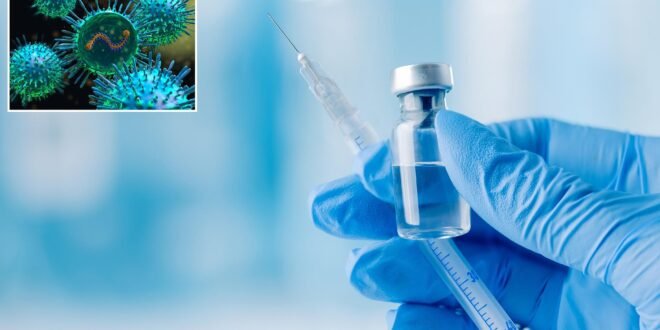New Alert Issued for RSV Vaccines Amid Rare Neurological Reaction Concerns
Healthcare professionals in the UK are now required to inform patients about a rare neurological condition linked to two newly approved respiratory syncytial virus (RSV) vaccines. The alert, issued by the Medicines and Healthcare products Regulatory Agency (MHRA), highlights a potential association between these vaccines and Guillain-Barré syndrome, a serious disorder that affects the nervous system.
The MHRA has raised concerns after reports of 21 cases of Guillain-Barré syndrome among individuals over the age of 60 who received the RSV vaccine. This condition is characterized by the immune system attacking nerve cells, leading to symptoms such as tingling, numbness, muscle weakness, and difficulty with movement. In severe cases, it can affect breathing and even cause facial drooping or trouble swallowing.
Although the alert does not mean the vaccines have been withdrawn, healthcare staff must now actively warn patients about the potential risk. This step ensures that individuals who experience any symptoms of the syndrome receive prompt medical attention. Experts emphasize that the benefits of the RSV vaccines—particularly their ability to prevent serious illness in vulnerable populations—outweigh the small risk of this rare condition.
Understanding the RSV Vaccines
Two RSV vaccines are at the center of the current alert: Abrysvo, developed by Pfizer, and Arexvy, produced by GSK. Abrysvo is available through the NHS, while Arexvy is offered privately. Both vaccines aim to protect older adults and pregnant women from RSV, a virus that can lead to severe complications, including pneumonia and hospitalization.
According to the MHRA, the alert specifically advises healthcare professionals to inform recipients of both vaccines about the signs and symptoms of Guillain-Barré syndrome. Patients should seek immediate medical care if they experience any of these symptoms. While warnings about the condition are already included in patient information leaflets, the new directive requires direct communication from healthcare providers.
This warning follows a similar alert issued by U.S. health authorities in January. American officials also emphasized the importance of awareness but reiterated that vaccination remains recommended for those eligible.
Tracking Adverse Reactions Through the Yellow Card Scheme
The MHRA’s alert comes amid ongoing monitoring of adverse reactions through the Yellow Card scheme. This system allows patients and healthcare professionals to report suspected side effects of medications and vaccines. As of June 2, the agency had received 21 reports of suspected Guillain-Barré syndrome following the administration of the Abrysvo vaccine. These cases occurred among approximately 2 million doses administered, indicating a very low incidence rate.
In contrast, no reports of Guillain-Barré syndrome have been linked to Arexvy, although its use in the UK has been limited so far. The Yellow Card system plays a critical role in identifying emerging patterns of adverse reactions. If a concerning trend is detected, the MHRA may review a drug’s approval, add new warnings, or even remove it from the market.
It is important to note that a reported reaction does not necessarily mean the vaccine caused the issue. Some cases may be coincidental, especially given that Guillain-Barré syndrome can occur independently of vaccination. The exact causes of the condition remain unclear, though some experts believe it may be triggered by an overactive immune response to an infection or a foreign substance like a vaccine.
RSV Vaccines and Their Impact
RSV vaccines were only approved in the UK last year and offer protection to high-risk groups, including older adults and newborns. The virus can lead to severe respiratory issues in infants and pneumonia in elderly individuals. By vaccinating pregnant women, the immunity can be passed on to the developing baby, reducing their risk of severe infection by up to 70%.
Government data indicates that around 62% of eligible older adults and approximately half of pregnant women in England received the RSV vaccine during the 2023-2024 financial year. Despite the success of the program, the recent alert underscores the need for continued vigilance and clear communication between healthcare providers and patients.
The Broader Implications
Guillain-Barré syndrome is more commonly observed in adults and men, though the reasons for this gender and age disparity are still under investigation. Most patients recover within a year, but some may experience long-term nerve damage. While the condition remains poorly understood, ongoing research aims to uncover its triggers and improve treatment options.
As the NHS continues to roll out RSV vaccinations, the emphasis on transparency and patient education remains crucial. By keeping the public informed about potential risks, healthcare professionals can ensure that individuals make informed decisions about their health and seek timely medical care when needed.
 Info Malang Raya Its All About World News
Info Malang Raya Its All About World News




